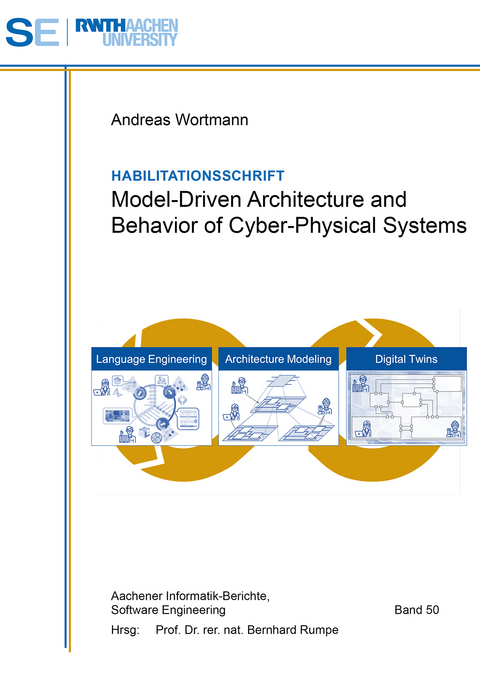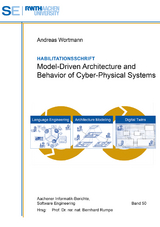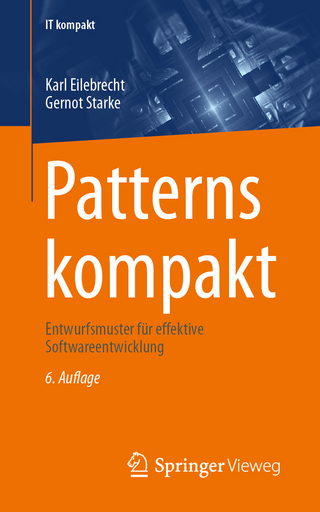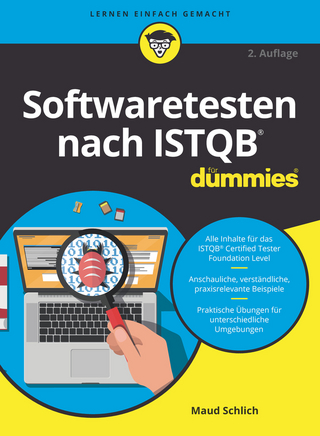Model-Driven Architecture and Behavior of Cyber-Physical Systems
Seiten
Systems engineering has produced striking results in many domains. Researchers and practitioners have devised concepts, methods, tools that autonomously move vehicles, enable doctors to conduct remote surgeries across continents, and sent astronauts into space. All of these cyber-physical systems are driven by software whose complexity increases tremendously. Overcompensating this growth in software and systems complexity demands novel methods that increase the abstraction in systems engineering, advance automation, and facilitate the integration of domain expert solutions. Model-based systems engineering aims to address this complexity by advancing systems engineering from its contemporary document-based processes to sophisticated model-based processes. In the latter, abstract models serve as means for systems design, communication, documentation, and the basis for implementation. But to overcompensate the growth in complexity, using models as secondary artifacts is insufficient. Research in software engineering has led to recognizing that model-driven processes, in which models are the primary artifacts, can significantly improve abstraction, automation, and domain-specific modeling to address the increasing complexity in systems engineering. Yet, model-based systems engineering focuses on informal models that are hardly accessible to meaningful automation and overly generic. This thesis summarizes 13 selected publications of a research program towards a model-driven systems engineering that operates on domain-specific modeling languages, supports sophisticated modeling methods, and enables the systematic operation of cyber-physical systems. Its results solve substantial challenges towards the model-driven engineering of cyber-physical systems.
Systems engineering has produced striking results in many domains. Researchers and practitioners have devised concepts, methods, tools that autonomously move vehicles, enable doctors to conduct remote surgeries across continents, and sent astronauts into space. All of these cyber-physical systems are driven by software whose complexity increases tremendously. Overcompensating this growth in software and systems complexity demands novel methods that increase the abstraction in systems engineering, advance automation, and facilitate the integration of domain expert solutions. Model-based systems engineering aims to address this complexity by advancing systems engineering from its contemporary document-based processes to sophisticated model-based processes. In the latter, abstract models serve as means for systems design, communication, documentation, and the basis for implementation. But to overcompensate the growth in complexity, using models as secondary artifacts is insufficient. Comprehensive research in software engineering has led to recognizing that model-driven processes, in which models are the primary engineering artifacts, can significantly improve abstraction, automation, and domain-specific modeling to address the increasing complexity in systems engineering. Yet, model-based systems engineering focuses on informal models that are hardly accessible to meaningful automation and overly generic.
This thesis summarizes 13 selected publications of a research program towards a modeldriven systems engineering that operates on domain-specific modeling languages, supports sophisticated modeling methods, and enables the systematic operation of cyber-physical systems. The results of this research program cover four substantial challenges towards the model-driven engineering of cyber-physical systems: First, it contributes to understanding the use of models and modeling languages for cyber-physical systems through a comprehensive literature study on modeling for cyber-physical systems in Industry 4.0. The study surveyed over 4.000 publications and produced insights into requirements for the efficient model-driven engineering and operations of cyber-physical systems in Industry 4.0. Second, it conduces novel foundations for the efficient engineering of domain-specific modeling languages based on the requirements identified in the literature study. These foundations introduce innovative notions of language components and their composition upon which families of domain-specific modeling languages can be created systematically efficiently. Third, it leverages these foundations to produce modeling languages to describe functional architectures and geometric-physical architectures of cyber-physical systems that support unprecedented automated modeling methods, including tracing, decomposition, and semantic differencing, to facilitate modeling, maintaining, and evolving these architectures. Fourth, it exploits the novel language engineering foundations and the unprecedented automated modeling methods to alleviate the systematic operation of cyberphysical systems with digital twins that represent and optimize the observed systems. Hence, this research program forges a bridge from observations on modeling cyber-physical systems, over software language engineering and modeling methods, to their operation that supports researchers and practitioners to advance from the contemporary document-based engineering of cyber-physical systems to their systematic model-driven engineering.
Systems engineering has produced striking results in many domains. Researchers and practitioners have devised concepts, methods, tools that autonomously move vehicles, enable doctors to conduct remote surgeries across continents, and sent astronauts into space. All of these cyber-physical systems are driven by software whose complexity increases tremendously. Overcompensating this growth in software and systems complexity demands novel methods that increase the abstraction in systems engineering, advance automation, and facilitate the integration of domain expert solutions. Model-based systems engineering aims to address this complexity by advancing systems engineering from its contemporary document-based processes to sophisticated model-based processes. In the latter, abstract models serve as means for systems design, communication, documentation, and the basis for implementation. But to overcompensate the growth in complexity, using models as secondary artifacts is insufficient. Comprehensive research in software engineering has led to recognizing that model-driven processes, in which models are the primary engineering artifacts, can significantly improve abstraction, automation, and domain-specific modeling to address the increasing complexity in systems engineering. Yet, model-based systems engineering focuses on informal models that are hardly accessible to meaningful automation and overly generic.
This thesis summarizes 13 selected publications of a research program towards a modeldriven systems engineering that operates on domain-specific modeling languages, supports sophisticated modeling methods, and enables the systematic operation of cyber-physical systems. The results of this research program cover four substantial challenges towards the model-driven engineering of cyber-physical systems: First, it contributes to understanding the use of models and modeling languages for cyber-physical systems through a comprehensive literature study on modeling for cyber-physical systems in Industry 4.0. The study surveyed over 4.000 publications and produced insights into requirements for the efficient model-driven engineering and operations of cyber-physical systems in Industry 4.0. Second, it conduces novel foundations for the efficient engineering of domain-specific modeling languages based on the requirements identified in the literature study. These foundations introduce innovative notions of language components and their composition upon which families of domain-specific modeling languages can be created systematically efficiently. Third, it leverages these foundations to produce modeling languages to describe functional architectures and geometric-physical architectures of cyber-physical systems that support unprecedented automated modeling methods, including tracing, decomposition, and semantic differencing, to facilitate modeling, maintaining, and evolving these architectures. Fourth, it exploits the novel language engineering foundations and the unprecedented automated modeling methods to alleviate the systematic operation of cyberphysical systems with digital twins that represent and optimize the observed systems. Hence, this research program forges a bridge from observations on modeling cyber-physical systems, over software language engineering and modeling methods, to their operation that supports researchers and practitioners to advance from the contemporary document-based engineering of cyber-physical systems to their systematic model-driven engineering.
| Erscheinungsdatum | 11.01.2022 |
|---|---|
| Reihe/Serie | Aachener Informatik Berichte Software Engineering ; 50 |
| Verlagsort | Düren |
| Sprache | englisch |
| Maße | 170 x 240 mm |
| Gewicht | 555 g |
| Themenwelt | Mathematik / Informatik ► Informatik ► Software Entwicklung |
| Mathematik / Informatik ► Informatik ► Theorie / Studium | |
| Schlagworte | Cyber-Physical Systems • Digital Twins • Formal Software Architectures • Model-Driven Engineering • software language engineering |
| ISBN-10 | 3-8440-8345-6 / 3844083456 |
| ISBN-13 | 978-3-8440-8345-3 / 9783844083453 |
| Zustand | Neuware |
| Haben Sie eine Frage zum Produkt? |
Mehr entdecken
aus dem Bereich
aus dem Bereich
Entwurfsmuster für effektive Softwareentwicklung
Buch | Softcover (2024)
Springer Vieweg (Verlag)
19,99 €
Das Anwenderbuch zur Abwicklung von Geschäftsprozessen
Buch (2023)
Carl Hanser (Verlag)
49,99 €




